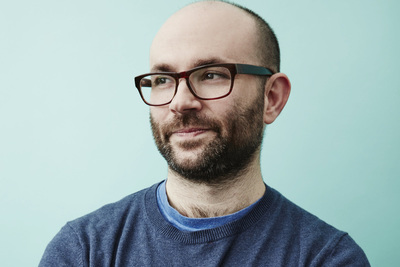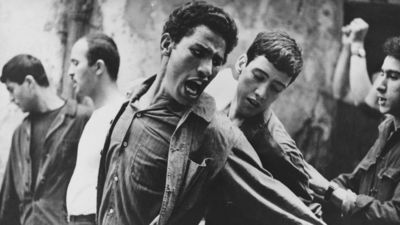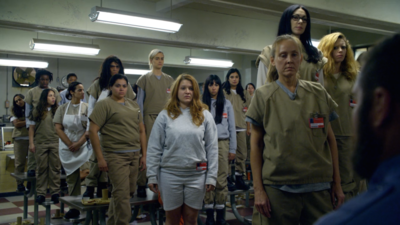
BY MATTHEW ENG |
Shell-Shocked: With DISORDER, Alice Winocour Solidifies Herself as a Filmmaker to Watch
The writer-director discusses her ticking time bomb of a thriller and finding intimate connections to her subjects.
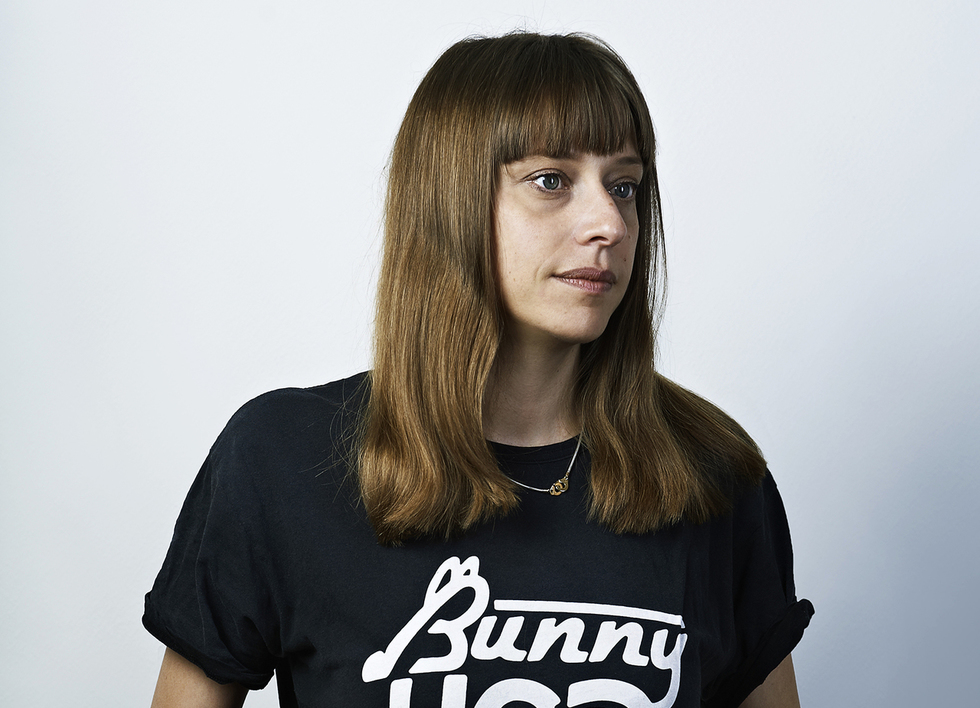
Midway through my conversation with the writer-director Alice Winocour, as she talks about taking inspiration from invasion films like Rio Bravo, Assault on Precinct 13, and Panic Room, she trails off and suddenly notes, “I think this generation of filmmaking is a generation of sampling. You mix genre films with more intimate things. And I think it’s something really cool to do, to try to invent new forms of telling stories.”
In her latest effort, Disorder, Winocour tells the story of an ex-soldier named Vincent (Matthias Schoenaerts) who moves into a palatial French estate to act as bodyguard for Jessie (Diane Kruger), the beautiful, blonde wife of a distracted tycoon. It’s a set-up that has all the necessary makings of a sentimental, slow-burning love story, a tale of forbidden romance enacted by two of contemporary cinema’s most swoon-worthy European crossovers.
But that isn’t the film Winocour has made. Instead, the French filmmaker, who previously directed 2012’s Augustine and co-wrote last year’s Oscar-nominated drama Mustang, has crafted a nimble, nerve-wracking thriller that reexamines the prolonged damage of PTSD and the dangers we think we see in everyone but ourselves. It’s a fearfully-assured thriller, bolstered by another superbly layered performance from Schoenaerts, flawlessly uncovering the vulnerable psychology behind a brawny physique, and the sheer ambition of Winocour, whose elemental filmmaking and technical prowess make a familiar story feel skillfully new.

I spoke with Winocour about why trauma is such an integral theme in her work, her obsession with physical filmmaking, and how her art has been unmistakably marked by our paranoid times.
Films about warfare are hardly unfamiliar on the big screen, but PTSD is a subject much rarer and trickier to tackle. What inspired you to take on this subject and write this story?
I heard that soldiers were coming back from Afghanistan. So I went to the hospital where some of them who were suffering from PTSD were sent. And I met them and they told me about the outbursts of violence, the nightmares, and all those symptoms that have been referred to as “PTSD symptoms.” That really fascinated me and that’s how I came up with the character Vincent. And I imagined this character that has to face a world of corrupted politicians and arms dealers. And he feels that there’s this threatening menace but he doesn’t know if it’s real or if it’s an effect of his paranoia.
Both of your feature directorial efforts thus far have dealt with trauma in significant ways. It’s also, unmistakably, a major theme in Mustang. What makes film such a fitting medium to express and analyze the effects of trauma? And what compels you to depict these distressing personal experiences on screen?
I think I have a really special connection with PTSD because I’m really fascinated by traumatized bodies and physical dysfunction — I mean when your body expresses your feelings, when bodies scream. That was the subject of Augustine, which was about hysteria and women that were liberating themselves by their violent fits because it was a way to express their rebellion. And I think PTSD is a physical trauma to express the violence of something. You’ve been close to death and then your body has this memory. And you’re not really human anymore, you’re in limbo. To me, words are not able to express your feelings. It’s not that you don’t find words. It’s that words don’t exist. And so I think cinema is the perfect way to express those feelings — with music, with images, with all those things that make film physical and carnal. That’s why I wanted the film to be about sensations. I was really not trying to tell a story in a classical way but play more with the rules of film.

Disorder is as much a sensory experience as it is a dramatic one. The sound design is so dense and detailed, there is a lot of slo-mo, and there are times when the camera is so invasive that it seems attached to Matthias. How did you conceive and execute the technical feel of the film?
I really was obsessed with the idea of not believing his point of view while I was writing the script, to only understand what he could understand of the main plot. But also, while shooting it, to only see what he could see. But it was something that was like a line from the writing to the direction to the editing to the mixing, so that we could only hear what he could hear. I wanted to catch all those little details like breathing and stuff that you really hear only when you’re by yourself. I was really inspired by those films that play with perception like The Conversation by [Francis Ford] Coppola and [Michelangelo] Antonioni’s films, like Blow-up. Those characters are observers.
Your use of music — both the original and largely rap-based song scores — feels so deliberate in in terms of setting a tone and raising the tension. How important a role does music play in your filmmaking? Are you thinking about it before production?
I did think about it before production because I knew it was an atmospheric film and music would be so important that I would have to know the composer before the film. And I was a great fan of Gesaffelstein, who makes this kind of very violent techno music. And, to me, it’s a very contemporary music because it has a religious [quality] but at the same time it’s really exhilarating. There are sounds that come when you don’t expect them. There’s a danger, a constant surprise that helped me recreate the mental landscape of the soldiers. You are in Vincent’s head with the music. It’s like the flashback of the war so I was constantly listening to the music. Even while we were shooting, I had the music in my ears. And [Gesaffelstein] actually came to the set to compose [some] scenes.
I know that you initially wrote the part of Vincent for Matthias and it’s hard to imagine a different actor in the role. What drew you to him and at what point did he join the project?
I had seen [Matthias] in Rust and Bone and of course his first film, Bullhead. And it blew my mind because he was so physical and has this humanity. I think I’m drawn to these actors that are really physical, like [Augustine’s] Soko and Vincent Lindon. And so I knew wanted to shoot with [Matthias] but I didn’t know him. So I started to write [the] part for him and I told his agent, but he has a lot of propositions. I was very lucky, though, because [Rust and Bone director] Jacques Audiard saw my first feature and said in front of Matthias that he really loved me. And it was the day, by coincidence, that his agent told him that I was writing the script for him.
So we had a coffee and he said, “Okay, I want to do the film.” So then it was hard to wait for a moment when he would be free but I was confident because I knew he really was connected with the character already. And we saw each other several times during the writing. He knew I was writing for him. I think he really immersed himself in the part. The subject was really important to him.
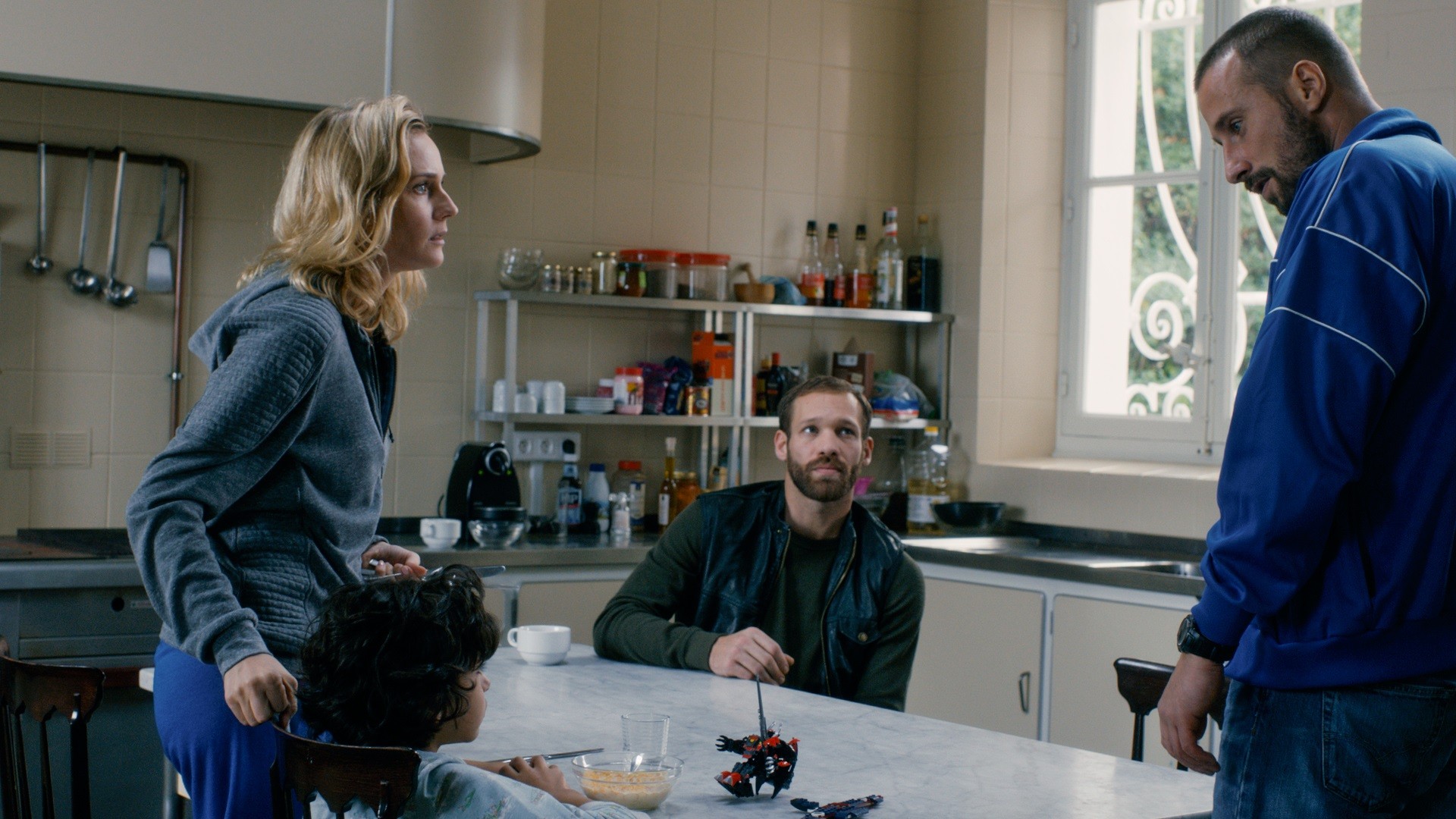
Matthias and Diane have some of the most electric and largely silent chemistry I’ve seen in a while. Did you rehearse with them or did this spark surface naturally during filming?
We didn’t have time [to rehearse] because both of them are so busy. But it was okay because it was also something I had experienced in my first feature with Vincent Lindon and Soko. And when that happens, you just organize something and then you’re like a spectator of your own movie. They’re trapped in that house, they don’t know each other, and you just see what happens. And I asked if we could shoot the film in continuity, which is quite unusual. I know it’s a privilege. But I really wanted the relationship to evolve. So it wasn’t very easy because at the beginning Diane is almost a shadow, you don’t really see her. It was a little frustrating having her and not being able to work with her.
The film is so embedded within Vincent’s perspective that every scene in which we see Jessie either features Vincent or is framed from his POV. We learn a fair amount about her but there’s also a great deal that we don’t know. She sometimes opens up, but inevitably closes again. I can see this being a potentially difficult role for a performer, but Diane makes her feel like a full if still elusive person. What did she bring to the role and what was your collaboration like?
I think what I love about Diane is that she has the Hitchcockian side. But she’s not cold at all. I think what I love in her is that she’s very emotional. But that’s something she hides because she’s also very glamorous at the same time. And it’s very rare to have both aspects.
What I had imagined about both characters is that they’re from the same social classes but they live in different worlds. So there’s a wall of convention between the two of them and this wall is broken for a moment. So I think I love this idea that she’s locked up in a golden prison but she doesn’t know how to escape from it. And, in a way, when she meets Vincent, she liberates herself. And Diane was able to follow the path of the character.
I left Disorder really wanting to see her play one of Hitchcock’s ice blondes.
She really has a Tippi Hedren side.

I’m so intrigued by her look. She starts off as this sort of femme fatale for our time. She exists on these elegant surfaces at the outset of the film but ultimately becomes something much more complex.
She starts off with this very glamorous look, that gown with the naked back. And then, after, the outfits are really different because she’s not dressing up anymore. And she abandons herself and she becomes closer to what she is. But at the same time, she’s tough. She’s not screaming.
The script feels incredibly conscious about what it discloses and what it leaves unexplored. Several relationships are only passingly mentioned, like Vincent and his mother, while other key ones, like Jessie and her husband, leave us with many unanswered questions about their history. How did you strike a balance between revealing too much or too little about these characters?
With the mother, I thought it was more interesting not to see her because it was a way of presenting a character in a very natural way. He’s this man, this soldier with lots of muscle, and then you seen him as a little boy in his room being really fragile and then you see his rebellion. And for the husband, I wanted a character that would be really mysterious in a way that you don’t really know what he’s dealing with. Neither Jesse nor Vincent really knows what is happening. Is it the effect of his paranoia that she thinks he’s corrupted and in real danger, or is it something else? It had to remain ambiguous. I really wanted to add some ingredients of a paranoid thriller and I always wanted the audience to question itself. That’s what I like about movies. It’s not giving explanation but being active. And that’s what Vincent experiences as he begins to tell himself stories and wonders, Is this real or is this not real?
I think that’s what we’re all experiencing now with the attacks around the world. We are all in Vincent’s state of mind. In a way, we are all post-traumatized. If we hear a noise that’s a little louder, we wonder, Am I being paranoid or is there something going on?
I was in the editing room during the Charlie Hebdo attack in Paris. And it was a weird feeling to me. It was as if I was in the movie. I went out of the room and I saw soldiers with guns walking in the streets. And suddenly I felt it was normal because we get used to it. And it’s not normal at all. And that’s what soldiers experience when they come from war zones, where the rules are different because it’s an area of survival. If you do the same in a peaceful place, you look crazy.
Nice was was fifteen minutes from where we shot the film. And it’s really a little strange to have this thing happening in the French Riviera, where I imagined the film a year and a half ago. There’s this idea that chaos comes home, which is the major idea of the film.
You wrote Mustang with Deniz Gamze Ergüven and worked on Disorder’s screenplay with a group of collaborators and consultants. What does working with others during the scripting phase contribute to your own filmmaking process?
I think it’s important to confront yourself with another. But at the same time, I feel really different writing for me than I do writing for someone else. [Mustang] was a story of a friendship that I wrote with Deniz because we were so close. We had a lot of fun writing the script and we were laughing all the time. Even if the story was tough in a way, we were trying to find ways to make jokes and I could connect with her story. Of course, I was not raised in Turkey. But I was raised with four cousins so I could relate in a way to her story, which was a mix of her memories, my memories, and the reality of today’s Turkey. And I think we both identified with the wild energy of those girls. But for [Disorder] and the next film I’m writing, which is about an astronaut leaving earth, it was different. It’s different for each film.
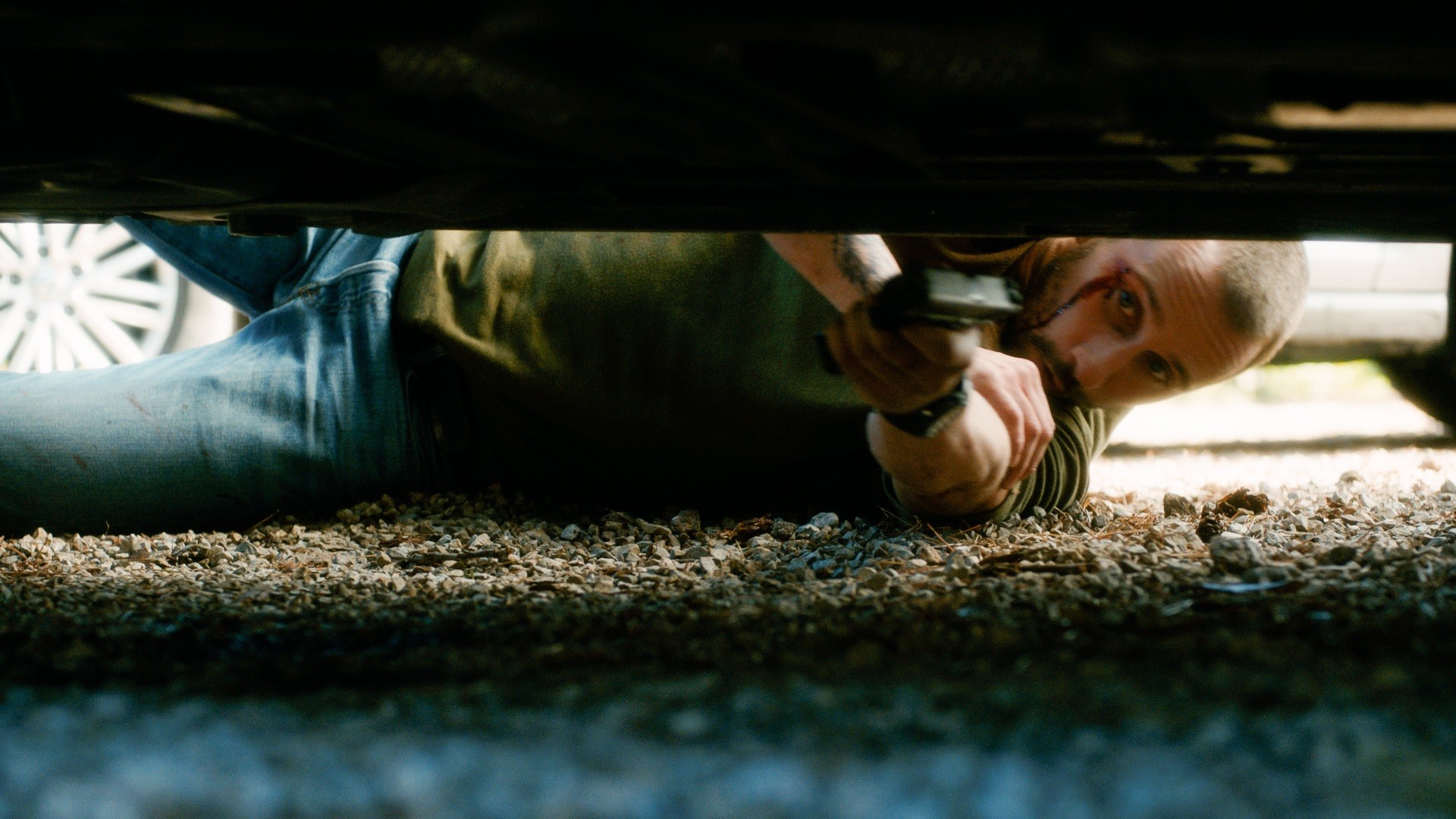
So you’re working on a film about space. What other stories do you hope to bring to the screen or even see on the screen?
As you can see, the few films I’ve done are very different from each other. [But] you can feel that there is a connection. To me, film has to be really intimate, even if the subject seems very far away, like Turkey.
Or space.
Yeah, space. Space is very far away but what I’m going to talk about is very intimate. And I think there are some people who are writing autobiographical things, but I couldn’t do it because I have to write fiction and imagine things that are very far away from me. I think about the Brontë sisters. They haven’t lived what they’re writing but they’re having fantasies about it and they live in these fantasies. I think I can do very different types of things — action movies, I don’t know, any type of film if I find an intimate connection.
Disorder opens in select cities and theaters (including Manhattan's IFC Center and Lincoln Plaza Cinemas) this Friday, August 12th.
